Part-time Maui resident Jeff Bezos, the third-richest person on earth, recently took delivery of the ultimate Gulfstream G700. It’s one of the fastest, most luxurious, and expensive private jets on the market. This plane reflects his desire for ultimate comfort and speed, which is especially useful on long and frequent trips to Maui, one of his favorite destinations on the planet.
But while we can appreciate Bezos enjoying Hawaii, as all of us do, this epitome of luxury travel so starkly contrasts with the experiences of typical Hawaii travelers, including your editors.
This disparity raises questions about environmental impact, economic inequality, and what the future of travel to the Hawaiian Islands may look like.
Bezos’ Gulfstream G700 is an unequaled private jet.
Jeff and Lauren’s latest travel toy, the Gulfstream G700, is undoubtedly a marvel of aviation. Priced at around $75+ million, this plane boasts a range of over 7,500 nautical miles and a top speed of Mach 0.925.
It includes a primary suite with a shower, among other amenities. For Bezos, this means he can now travel to Maui from any of his other home bases faster, more comfortably, and with greater privacy than was possible before.
Bezos’ G700 compared to the experience of most Hawaii visitors.
While representing the height of luxury travel, his G700 also underscores a huge contrast to the experience of most travelers. The typical Hawaii visitor endures crowded airports, sometimes long security lines, and cramped economy seats on commercial flights that often stretch five to six hours from the West Coast to the islands.
For many, a trip to Hawaii is a once-in-a-lifetime experience that requires careful budgeting and planning, far removed from the opulence of a private jet journey. We’re thrilled to get any modicum of extra legroom for the journey!
Economy vs. ultra-rich: two different worlds of Hawaii travel.
The contrast between Bezos’ air travel experience and that of an average Hawaii visitor could not be more pronounced. While Bezos relaxes in his ultra-luxurious jet, most of us are grateful to endure the challenges of commercial flights—economy class seats, 30-32 inches of legroom, and very limited in-flight services. The difference isn’t just about comfort; it first speaks to a broader economic disparity among island visitors.
A trip to Hawaii is a big financial commitment for the average family. Many of you report saving for long periods to afford Hawaii’s high costs. Between airfare, accommodations, car rental, and other expenses, the costs quickly add up. Meanwhile, for the ultra-rich like Bezos, travel is about convenience, speed, and exclusivity. Bezos’ jet allows him to bypass hassles we associate with air travel, from TSA lines to baggage claim, and head straight to his Maui retreat.
The huge environmental footprint of the most luxurious of Hawaii travel.
Beyond mere economic disparities, another significant issue is the environmental impact. The Gulfstream G700, like other private jets, comes with a huge environmental cost. According to reports, in just over one month, it has emitted 264 tons of C02, which is seventeen times what an average American emits in one year.
Bezos’ plane completed nearly one flight a day, drawing further attention to its environmental footprint—despite the fact that Bezos says he pays for carbon offsets. This comes into focus as Hawaii contends with protecting its unique ecosystems. The influx of private jets to the islands contributes to carbon emissions.
From Hawaii’s skies to the seas, the ultimate extravagances.
Last year, Bezos’s travel choices also raised eyebrows. His superyacht was rumored to have been in Maui, among other places, and sparked similar discussions. The yacht represents another layer of luxury travel that contrasts sharply with the average visitor’s experience.
Bezos’ jet and yacht underscore the latest trends among billionaires seeking unique and extravagant ways to enjoy Hawaii.
The broader implications for Hawaii.
The presence of ultra-wealthy visitors like Bezos brings both opportunities and challenges for Hawaii. On one hand, their spending and contributions can boost the local economy. On the other hand, they contribute to economic inequality and strain the islands’ resources.
What are your thoughts on private jet travel to Hawaii?
Get Breaking Hawaii Travel News
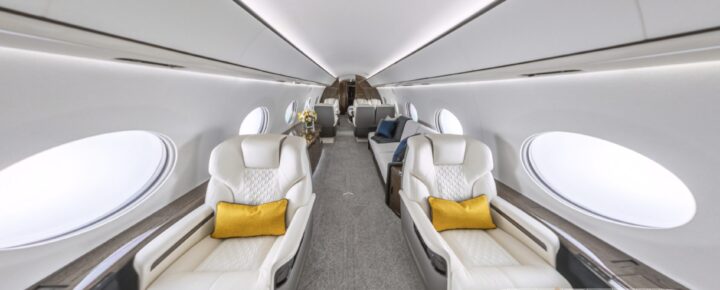
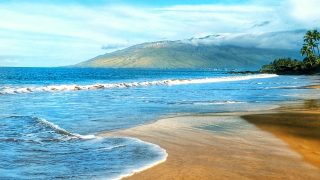
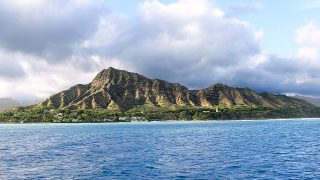
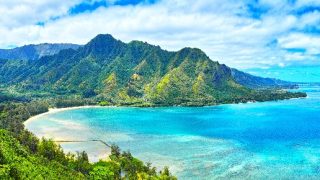
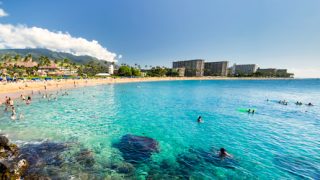
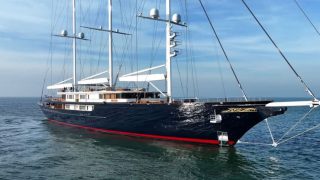
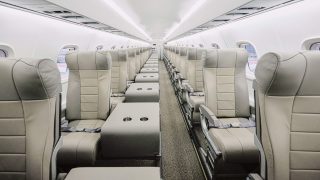
Of course the ultra-wealthy are able to enjoy “luxury travel that contrasts sharply with the average visitor’s experience.” So what? That’s hardly newsworthy.
The last sentence of the article says that the ultra-wealthy “…contribute to economic inequality and strain the islands’ resources.” First, they aren’t “contributing” to economic inequality, it already exists before they even get to the islands. Second, how do they strain the island’s resources any more than I do when I visit?!
While I enjoy most all of your articles, I think this one seems to be inflaming the sense of envy and class warfare for no constructive purpose.
Great response. It doesn’t matter how one gets to the islands. The disappointment for me is it ignores addressing why things are so expensive and the impact that those factors challenge the rest of us and the working people of the islands.
Here’s a good example of how the obscenely wealthy pillage resources while contributing next to nothing in the local economy.
The Big Island private enclave of Kukio was built because some felt the uber-private residences of the Four Season Hualalai weren’t exclusive enough. Owner’s at Kukio are not allowed to put their homes on the vacation rental market, not they would ever dream of doing something so déclassé. As a result, these homes sit empty most of the year, with AC and irrigation running 24/7. Kukio sits on what would otherwise be a barren, arid, lava field. It requires constant irrigation to transform this area into the lush, verdant oasis they insisted on building there. They waste unfathomable amounts of water and electricity.
Most of these people are in residence for only a few weeks per year. Occasionally, their homes are used by family members, but again, for only a week or two. The rest of the time, they’re empty, wasting water and power.
Bezos and other titans who had a vision and pursued it deserve the rewards they reap, says one side. The growing class disparity between the über-wealthy and the rest of us is detrimental to the greater good, says the other.
I don’t begrudge them their luxuries, but I am alarmed at how little most of them use even a portion of their wealth towards the greater good. Bezos “earned” his jet comfort, but it is used daily and at significant climate impact. Someone like Musk is interfering in global politics and that will impact the citizens of earth, as well.
Perhaps these folks could use some of the wealth they could never spend in multiple lifetimes to modify some of their toys to have a better carbon footprint, as well as to actually follow through on making sure their pledge donations get to the citizens they pledged them to help, rather than just worrying about whether they can shower on their next flight to Maui or rocket to Mars.
How does someone like Bezos strain the island resources? Have you determined, by data analysis, the difference between the contributions they make against the economic inequality and the strain on island resources? Or was the last paragraph your thoughts to generate discussion?
I actually grow weary of all the Bezos negative commentary. He founded a company; worked 7 days 20 or more hours a day; and he became wealthy. Isn’t hard work and ultimate success part of the so called “American Dream”? So much is now written that he is a “bad guy” for enjoying his success. None of us no matter how rich we might be will live forever. He should enjoy the success of his life’s work. I think people should be happy that someone with his drive and imagination has succeeded. Steve Jobs changed the way we live and communicate. If he were alive today would we be critical of his use of his wealth?
Bezos expanded a great business model that the vast majority of us use. We bought him the plane and the yacht by supporting his company. I don’t understand the tone of the article positing him as the poster child for irresponsible stewardship? At least he’s buying carbon credits. Yes, there are other billionaires with a better moral record, but there are many more who are worse. I’m not a fan of him personally, but I’d be hypocritical as a Prime member to slam his extravagances.
I could care less what the “1%” is doing… I’m perfectly happy (and thankful) being able to afford decent commercial seats going home to Oahu and lie flat beds on the redeye back. When you have everything you truly need in life and some of what you want, you’re doing very well…
Best Regards
It’s not surprising the Jeff and Lauren like Maui – so do we. They “pledged” $100 million for Lahaina restoration after the fires, and I see they have actually contributed just $15.5 million so far. Now we know where $75 million of that went.
I don’t have one bit of envy of someone that makes it on their own, Bezos, Gates, Ellison, Winfrey etc. These people did not inherit their money. What does get under my skin is the “rules for thee not me” attitude regarding saving the planet from carbon. I fly to Hawaii and produce carbon, however I don’t point my point finger at others and say “you’re the problem”. Why are we surprised that Gov. Green is squeezing out the middle class. When someone tells you who they are, believe them the first time. You get what you vote for whether at the state or national level. BTW, love your articles, I read every one.
Can we get just a little more space on consumer jets for such a long flight to Hawaii? We are human beings, not sardines.
My thought goes back to the hypocritical actions of ultra wealthy. For example Bezos said “Climate change is the biggest threat to our planet.” I guess that means Everyone Else should do their part to save the environment to offset the damage he does.
Have all airlines use Southwest type one sardine class seating for maximum carbon reduction. Eliminate All private planes/ jets. Then let’s see who still backs the idea that mankind can change the weather of planet earth, or maybe the result of natural variability factors like the sun, earth’s tilt, etc.
I definitely meant to say Mr. Bezos.
But seeing Mr. Bozos in print was pretty funny…
You guys are a little whiny about Mr. Bozos success.
Hawaii needs guys like him and all his friends…
Just another jet in the sky making the landing configuration more crowded. What circle drop circle drop 4 times from 350000 feet before landing at HNL. The more private luxury jets entering and leaving the islands just make it more probable for a jet to jet collision.
What now circle 8 times and take an extra hour just to land? When will tourist’s be required to wear hard hats? IMO just another step closer to experience an airline collision disaster.
“The rich are different than us!”
“Yes, they’ve got more money!”
Bezos is precisely the kind of tourist that the governor and mayor want. He is the epitome of the “quality “ that they’re trying to attract, while putting every possible obstacle in place to make Maui as unaffordable as possible for the rest of us peasants. At least the beaches won’t be as crowded this way!
Let’s see – this is also the same Bezos who is all about fighting climate change … Looks pretty hypocritical to me!
IMO maybe Jeff Bezo’s will be the first filmed on the show High Mile Club and will come to flash a huge bankroll. I don’t care to see how the luxury rich spend their money and what they can afford versus the rest of the crowd. The more the media exposes these events will inflict price increases in everything for the less fortunate tourists and locals.
What, not a Blue Origin rocket? How dissolutioning.
Tongue firmly planted in cheek.
Time to surcharge or place a special landing, takeoff surcharge for private luxury Jets the same way commercial flights charge customers for airport runway,landing surcharges imposed on your airline ticket taxes and fee’s. It isn’t like Hawaii has enough airplanes landing and departing as it stands now. Just because you own your own plane shouldn’t make it a no cost trip.
It doesn’t cost 0 to operate a private aircraft at most airports.
There are lots of ways we can take from the rich, but I assure you, flying his plane to Hawaii is not a no cost undertaking.
Carbon footprint for you, but not for me!
Bezos just happens to be very public about his extravagant lifestyle. There are other very wealthy people in Hawaii who are equally extravagant, but hide behind tall fences and hedges. Oprah comes to mind. There is nothing wrong with being rich, and we don’t know what goes on behind closed doors. Let’s be honest here and admit that we would love to travel in that kind of comfort too!
I need to catch a flight OGG LAX on 09/15. I’ll be discreet if invited to get in.
I always wondered how the ultra rich contributes to the Hawaii local economy in a really positive way. I am not sure that exists. Much of their stay on the islands are behind gated communities and I wonder how much they buy locally vs bringing it with them on their aircraft. I don’t have any knowledge on this matter just wondering. Yes some do make contributions to worthy causes but to what extent. Sure is a lot of land taken away and developed that will never be affordable for those who live full time in Hawaii.
Dear Beat of Hawaii,
If “You” were the third richest person on earth, would you sit in the last row, middle seat of Southwest to Hawaii………I think not. I know I wouldn’t.
Is this supposed to be some breaking news? Income disparity in the world? I’m not quite sure what the point of this article is.
Additionally, this is just what the mayor says he wants now … fewer people visiting the island. But the people that should come should be the ultra wealthy to make up for the hundreds of thousands of others that won’t be able to come because he wants to eliminate affordable lodging options for most.
This world has never been equal and never will be. Yes his plane may leave a carbon footprint, but like it or not, wealthy folks do contribute a lot to your economy, especially if they own a home. Before casting stones at the wealthy (Gov. Green’s preferred tourists) for their carbon footprints, perhaps the locals should first clean up the litter and burned out cars they leave all over the islands. That is visible pollution that makes your beautiful islands look like a dump. I must say….bitterness and envy are not the way to make life better anywhere, and this article and some of the responses are dripping with both.
“Economic inequality…” That’s always been a thing. From first class travelers on board Ocean liners to flyers in First class and people like Bezos.
Does it really matter how people get to Hawaii?
I don’t think you are saying we should All travel coach so the travel would be equal, are you? Or we should all stay in the same category of hotel?
There’s no shame in being rich or poor.
This is not specific to Hawai’i. Those with money travel differently from the rest of us. Not really sure why this is even an article.
How is this rise than the cross Town flights being taken in Los Angeles?